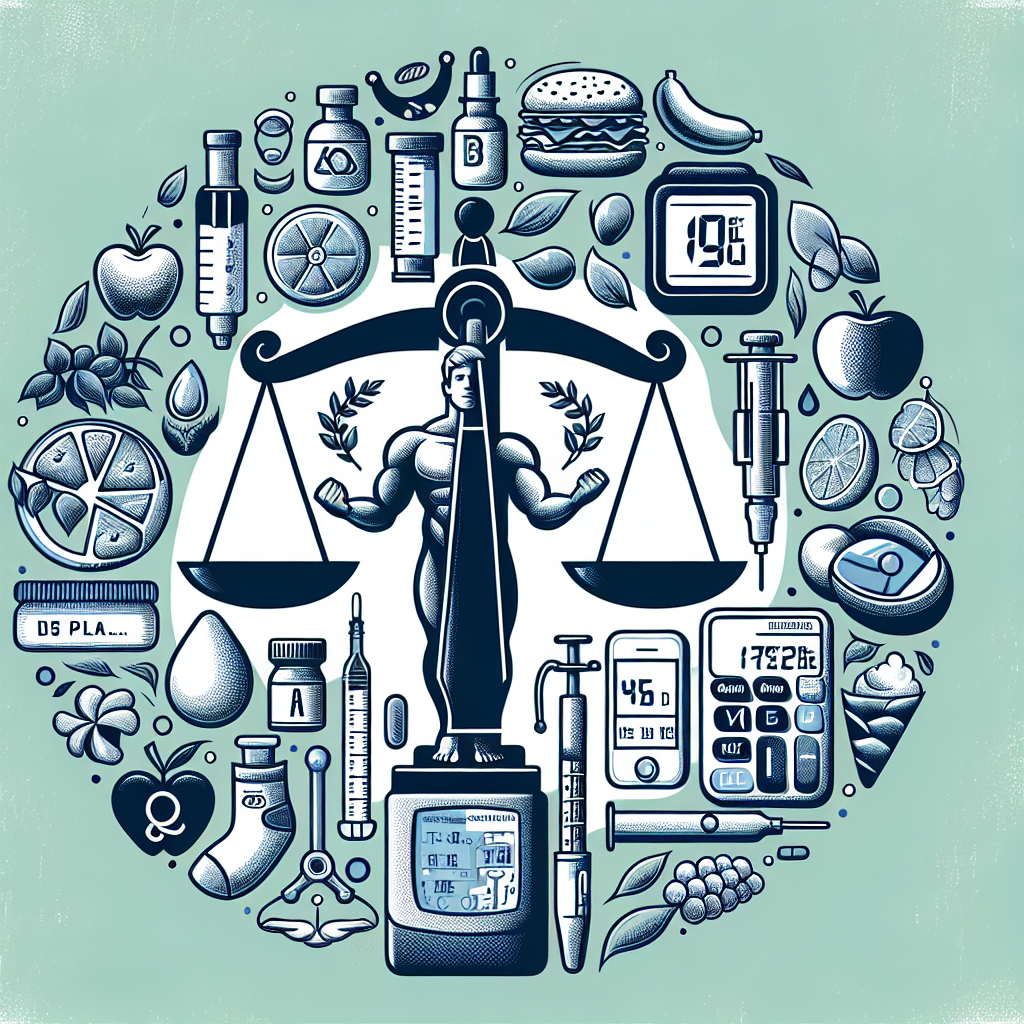[ad_1]
Living with Type 2 diabetes presents unique challenges, but self-advocacy is vital for effective management and overall well-being. Understanding your condition, being proactive in your care, and communicating effectively with healthcare providers can make a significant difference. This blog post will guide you through key strategies for advocating for yourself while living with Type 2 diabetes, ensuring you can lead a fulfilling and healthy life.
Understanding Type 2 Diabetes: The Basics of Self-Advocacy
To effectively advocate for yourself in managing Type 2 diabetes, it’s crucial first to understand the condition itself. Type 2 diabetes is characterized by insulin resistance, where the body’s cells do not respond effectively to insulin, leading to elevated blood sugar levels. This chronic condition is largely influenced by lifestyle factors such as diet, physical activity, and weight management. Awareness of these aspects allows you to take proactive steps, reinforcing the importance of self-advocacy.
Self-advocacy in diabetes management entails understanding your health metrics—like blood sugar levels, A1C readings, and potential complications. This knowledge empowers you to engage actively in discussions with your healthcare team. By actively participating in your care, you’re not only taking ownership of your health but also ensuring that your voice is heard concerning treatment options, dietary modifications, and lifestyle changes necessary for your management plan.
Educating Yourself: Knowledge is Power
One of the most effective tools in self-advocacy is education. Being informed about Type 2 diabetes will empower you to make better decisions regarding your health. Start by seeking credible resources—consider books, reputable websites, and diabetes management programs that provide comprehensive information about the condition, treatment options, and lifestyle changes.
Moreover, understanding the science behind Type 2 diabetes helps you make informed decisions when discussing your care. For instance, when providers discuss medications, dietary changes, or blood sugar monitoring, you should feel comfortable asking questions about how these aspects will impact your overall health. Being versed in the terminology and treatment options lays the groundwork for constructive conversations with your healthcare providers.
It’s important to recognize that learning doesn’t stop with the basics. Diabetes is a dynamic field with new research and guidelines emerging frequently. Stay updated on new diabetes management strategies, nutritional guidelines, and technology that can assist you in monitoring and managing your condition effectively. Participating in workshops or support groups can also enhance your knowledge and connect you with others who share similar experiences.
Open Communication: Building a Partnership with Your Healthcare Team
Effective self-advocacy requires open communication with your healthcare providers. Establishing a collaborative relationship with your doctors, dietitians, and diabetes educators can foster an atmosphere of trust, where you feel comfortable discussing your concerns and preferences. When you actively participate in these conversations, it can greatly impact your management strategy.
Prepare for appointments by writing down your goals and specific questions. This prep work can help you stay focused during consultations and ensure that you cover all critical points. Additionally, sharing your challenges—whether they are related to diet, exercise, or medication adherence—enables your healthcare team to tailor their recommendations to suit your lifestyle. Remember, healthcare providers are there to support you, but they need to understand your individual circumstances and preferences.
Another essential aspect of communication is expressing your feelings and experiences regarding living with Type 2 diabetes. Sharing personal stories can help your providers see the impact of your condition on your daily life. This insight enables them to provide you with individualized support, including coping strategies and resources that may not be commonly discussed in standard care.
Setting Personal Goals: Establishing Clear Objectives for Your Health
Advocating for yourself also means taking an active role in setting personal health goals. These goals should be realistic, measurable, and tailored to your unique lifestyle and health status. Whether it’s lowering your A1C, incorporating regular physical activity, or making specific dietary changes, having tangible objectives gives you a roadmap to follow.
When engaging with your healthcare team, use your goals as a foundation for discussions. For example, if losing weight is one of your objectives, bring it to the table to explore effective weight loss strategies and how they align with your diabetes management plan. Your healthcare provider can assist in creating a personalized plan that includes actionable steps, potential obstacles, and timelines.
Moreover, regularly assessing and reviewing these goals is essential. This allows for flexibility in your plan—if you find certain targets are not attainable or if your lifestyle changes, it’s crucial to communicate these shifts with your healthcare team. Adjusting your goals collaboratively will help you stay motivated and focused on your health journey.
Utilizing Technology: Tools for Better Diabetes Management
In today’s digital era, technology plays an integral role in diabetes management, making self-advocacy even more accessible and effective. Numerous apps and devices are designed specifically for people with Type 2 diabetes, helping you track blood sugar levels, medication adherence, dietary intake, and physical activity. Utilizing these tools can enhance your understanding of your condition and enable more informed discussions with your healthcare team.
Continuous glucose monitors (CGMs) are particularly valuable for real-time monitoring of blood sugar levels. By providing immediate feedback, these devices can help you identify patterns and triggers in your blood sugar levels, guiding necessary changes in your diet or activity levels. When discussing your readings with your healthcare provider, this data-driven approach can help you both make more targeted adjustments to your care plan.
It’s also worth exploring online communities and forums for people living with diabetes. These platforms can offer essential support and a sense of community, allowing you to share experiences, resources, and tips with peers who understand your journey. Connecting with others can alleviate feelings of isolation and foster a shared sense of advocacy for your health.
Taking Charge of Your Nutrition: Making Informed Food Choices
Healthy eating is an integral part of managing Type 2 diabetes. Educating yourself about nutrition and understanding how different foods impact your blood sugar levels empowers you to make informed dietary choices. Work with a registered dietitian or nutritionist familiar with diabetes to create a personal meal plan that fits your lifestyle, preferences, and health goals.
Advocate for your nutritional needs by discussing any challenges you face in implementing dietary changes during your appointments. Be honest about your likes and dislikes, as well as your cultural food preferences. A knowledgeable dietitian can adapt recommendations to ensure that your diet is enjoyable, sustainable, and aligned with your health objectives.
Beyond meal planning, being an advocate for your own nutrition involves learning to read food labels, understanding carbohydrate counts, and recognizing hidden sugars. This knowledge enables you to make healthier choices when dining out or grocery shopping. Also, don’t hesitate to explore new recipes and meal ideas that fit within your dietary plan to keep meals exciting and diverse.
In conclusion, advocating for yourself while living with Type 2 diabetes is a multifaceted approach that requires education, communication, and proactive decision-making. By taking the time to understand your condition, establishing clear goals, utilizing technology, and making informed nutritional choices, you empower yourself to lead a healthier and more fulfilling life. Remember that you are not alone; your healthcare team and supportive communities are invaluable resources in your advocacy journey. Embrace self-advocacy; your health is worth it!
[ad_2]






















